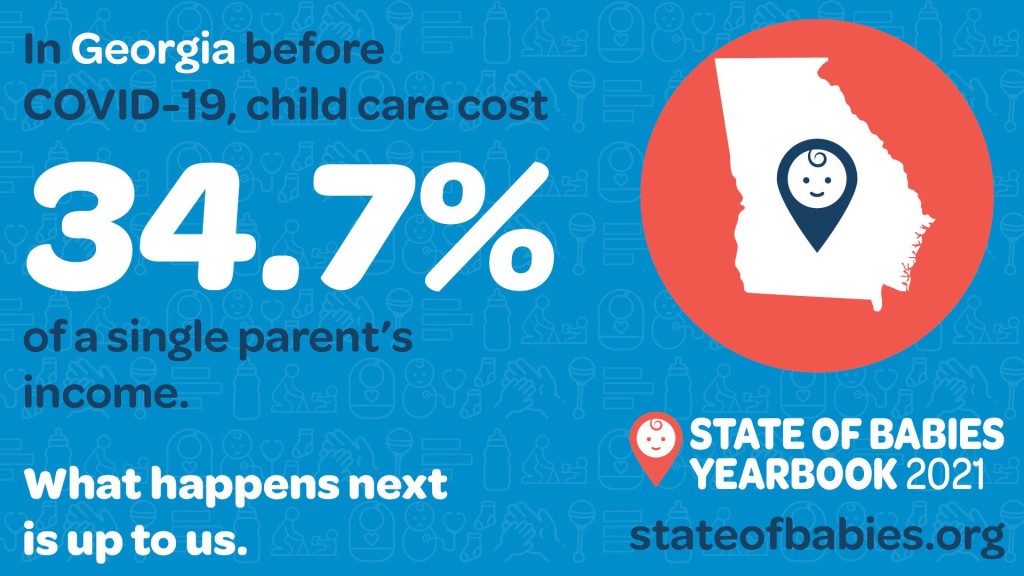Still Room to Grow for Georgia as a State for Babies

By: Mindy Binderman for Saporta Report
Georgia is still just getting started when it comes to making progress for our infants and toddlers.
That’s according to a ZERO TO THREE, whose latest State of Babies Yearbook: 2021 report shows while Georgia has made progress in supporting young children in our state, we still have a good deal of work to do. Each year, this national organization takes an in-depth look at state-by-state progress across 60 indicators that affect the well-being of children from birth to age three in three key policy areas: Good Health, Strong Families, and Positive Early Learning Experiences. (Read the full report here.)
Georgia was among thirteen states to fall into the report’s lowest tier with a “Getting Started” ranking. The report once again shows that we must continue to make improvements in early education, healthy development, and family supports to ensure Georgia a better place for everyone to raise a child.
Even before the COVID-19 pandemic, too many Georgia families with young children – particularly Black and Brown families and those with low income – faced barriers due to longstanding disparities. The pandemic exacerbated the challenges already facing these communities. However, the pandemic has also galvanized GEEARS and other advocates to push for the investments and policy changes needed to ensure all children have an equitable start in life.
Closing the equity gap must be among Georgia’s top priorities, and to do so we must provide greater support for young children and their families. To do better for our babies, our leaders can seize the opportunity to create the forward-looking, family-centered policies that Georgia currently lacks.
Expanding access to high-quality child care is an essential step that will support children’s learning and allow their parents to return to work. Too many Georgia families still lack this access. Georgia’s Childcare and Parent Services (CAPS) program, for example, only provides child care scholarships to an estimated 15 percent of income-eligible children in Georgia, primarily due to limited funding. Together with our partners, GEEARS worked to ensure the FY2022 budget included a $3.5 million increase for the program, and we will continue to work to increase access in the future.
A variety of policies can help build strong families in Georgia, including the provision of safe and stable housing, home visiting services, paid family and medical leave, and tax benefits for families with young children. While performing better than the national average on some indicators, such as the percentage of parents reporting living in unsafe neighborhoods, Georgia ranks in the bottom half of states in the “Strong Families” domain, according to the ZERO TO THREE report. Yet the state has made progress in improving access to one key family support: paid parental leave. HB 146, which would grant three weeks of paid parental leave for close to 250,000 state employees, passed the House and Senate and awaits the Governor’s signature.
Georgia continues to fall behind other states along indicators of maternal and child health, according to the ZERO TO THREE report. Again, there is also promising news to report from the past year. Governor Brian Kemp is currently considering HB 163, which would implement Express Lane Eligibility, enabling the state to use SNAP application data to identify and enroll eligible children in Medicaid and PeachCare, after it passed the Georgia House and Senate last month. Doing so would make it easier for more than 60,000 currently uninsured children to enroll in Medicaid. In addition, the federal government recently approved Georgia’s waiver extending pregnancy Medicaid from 60 days to 6 months postpartum. GEEARS will continue to work with our partners to advocate for continuous Medicaid eligibility for children under five and to extend pregnancy Medicaid to one-year postpartum to support both mothers and children.
Together, we can make the improvements we need in early education, healthy development, and family supports to make Georgia a better place for everyone to raise a child.